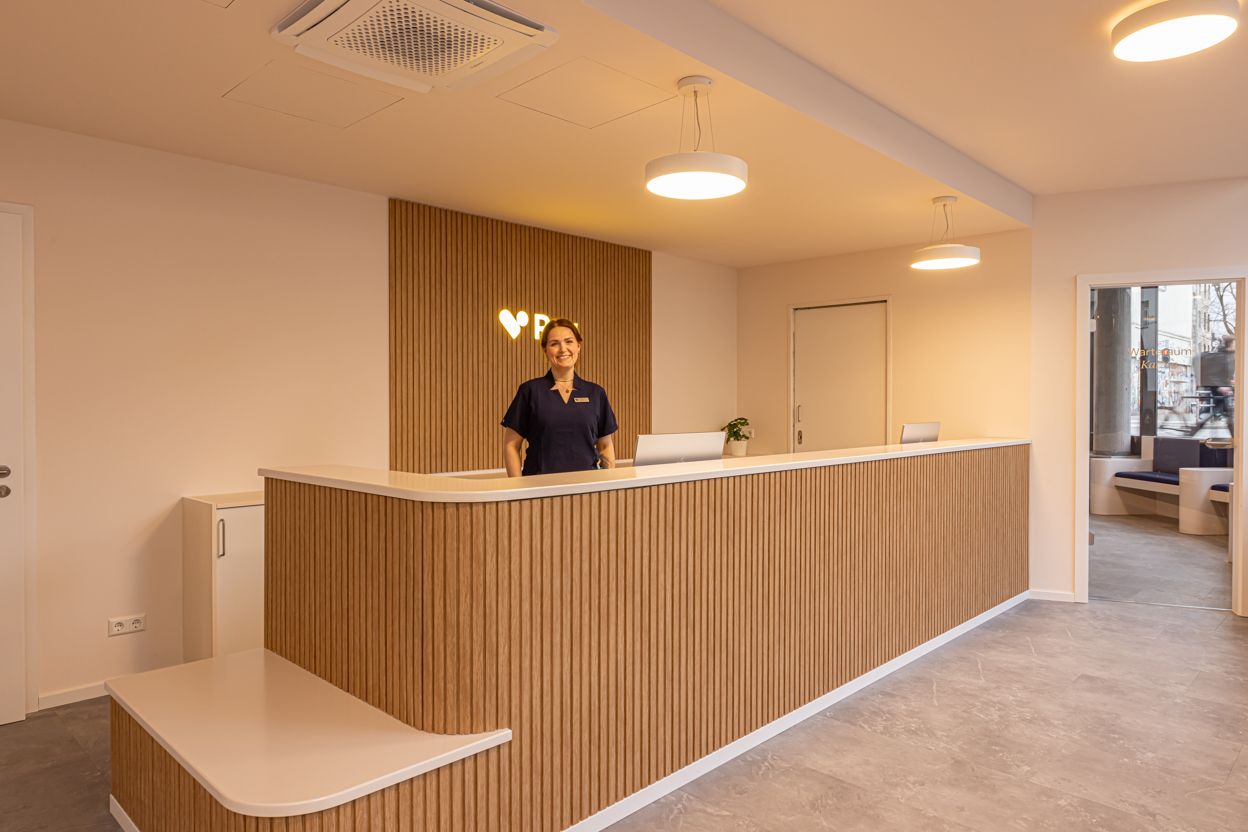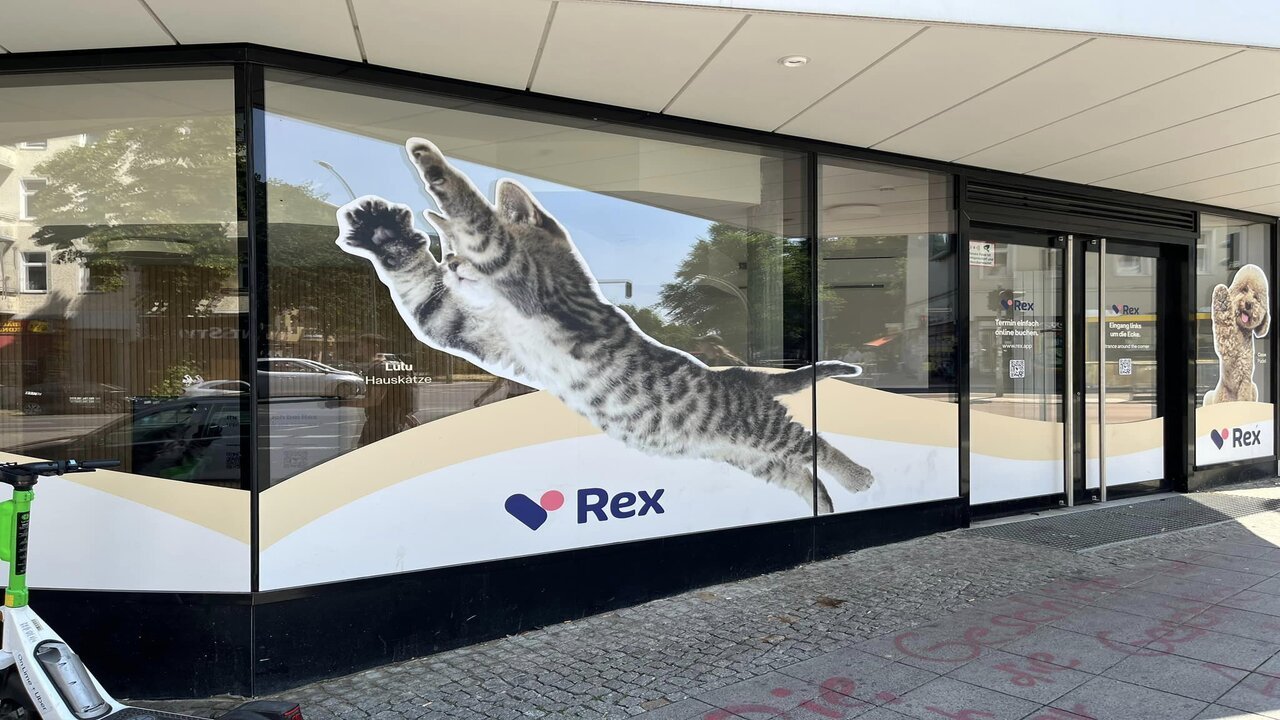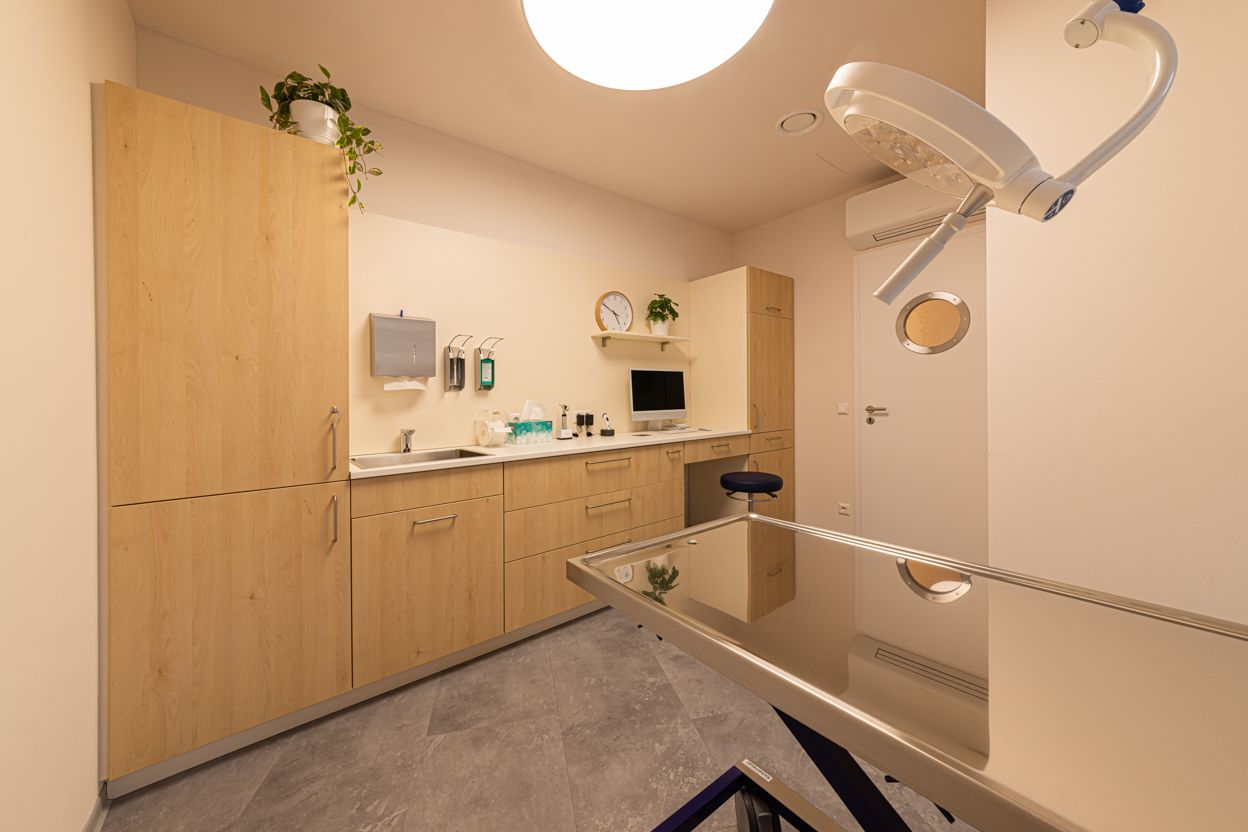I never thought visiting a vet would be such a funny experience. I walked into a clean, modern clinic that could have been a hairdresser. Lowlights and blonde wood. But there's free dry pet food, and water was easily accessible.
And there's a separate waiting area for cats.
I walk up to the reception desk and say,
"Hi, I'm Cate; I'm here to see Jonathan?"
The staff member clicks away, looking at the screen.
"Can you show me the appointment?"
I hold up my phone.
"I just can't see any pets by that name."
"Oh, I mean Jonathan, your CEO."
Hehe.

Rex is on a mission to transform the UX of visiting the vet.
The company was founded by Jonathan Loesing and Julian Lechner in late 2021 and operates its own practices (three so far in Berlin) and a digital platform of pet products and services such as triage and aftercare.
I visited the clinic in Neukölln and spoke to Loesing to learn more.
A problem that takes more than software
With asserts that "Fixing the veterinary, the experience of going to the vet. It sounds simple, but it's a very hard problem. You can't solve hard problems only with software."
Although Rex's digital user journey helps remove some of the rudimentary pain points. Online booking software replaces repeated calls to a clinic for an appointment and helps schedules run on time. Digital intake means the intake nurse doesn't have to "try to decipher your scribbles."
Loesing explains:
"All medically relevant details are forwarded through API's into the practice management system where the doctor can see it and work with it to create the medical records. And the communication afterwards is also all digital. So in no part of the process is paper involved.
This makes for a much better user experience for the end user and much less boring administrative work."
Improving veterinarian wellbeing
Rex strives to remove, digitise and automate the bulk of administrative pain points, leaving staff to spend their time caring for animals. Veterinary medicine is a highly regulated environment with everything from radiation to narcotics.
Vets and vet staff have it tough. They experience long hours, the reality of dealing with animals sick and in pain (and their owners), and higher suicide levels than the general population. Retaining staff is challenging.
In response, Rex also focuses on being a great employer brand. Loesing concedes that while he can't change every part of an "extremely stressful job, some of which is innate to the work you do."
"We can take away all the other headaches that you didn't sign up for when you studied veterinary medicine: marketing, accounting, construction, all things that aren't in your job description that you're not trained for, and you're not interested in."
Furthermore, he details:
"We're a full stack company. We do recruiting, brand building, marketing, construction, software engineering — everything."
The practice also invests in up-to-date technology, including onsite testing and training to keep staff skills current.
But it also has to balance innovation with its overall UX goals. For example, there's a high concentration of pet tech-related businesses retailing everything from hardware to pet food, insurance, and supplements. Many of them have their own business models relying on partnerships and veterinary practices as retail.
Loesing explains:
"We want to ensure we are not mixing up our messages with these other brands. We cannot fully control their user experience. Further, getting data (for example, from wearable tech) into a clinic is difficult and would prove more challenging in older clinics. Even if you have the buy-in from the vets and a viable commercial model."
I think its a good reminder that even the most advanced tech has the challenge of integrating with traditional modes of practice, legacy hardware, and brand integrity.
Digital-first as a catalyst for preventative health
Rex also invests in preventative care, a big business trend in the US. But while human health care is becoming more digitised, animal-related services in Germany have been slower to adapt.
Loesing notes that Germany, culturally, is less forward when it comes to preventative care such as an annual blood test, diplomatically noting,
"The German consumer is cost conscious to instil in the mindset, typically only going to a vet if there's a problem or to get vaccinations. We're hoping that changes because it would improve the lives of their pets. But of course, it's a consumer's decision."
However, one of the benefits of digitised records is a central pool of health data which Loesing believes lays the groundwork for changing veterinary medicine. Loesing believes that in 5 to 10 years:
"We're going to be in a position to draw insights from this data that no one else can because no one else is aggregating and no one else is digitising. Data points around breed, castration status, and medical history; we can potentially go into preventative care once you extend this to hundreds of thousands of pets.
The data will also be valuable in early warnings of local disease outbreaks and broader population health. And this is challenging how animal health is currently done where "usually you diagnose problems after they're visible to one human based on one pet. But if we go in an algorithmic direction? There's a completely different way of diagnosing and treating pets."
Rex has raised €5 million in funding, most recently raising a seed round in 2022.




Would you like to write the first comment?
Login to post comments